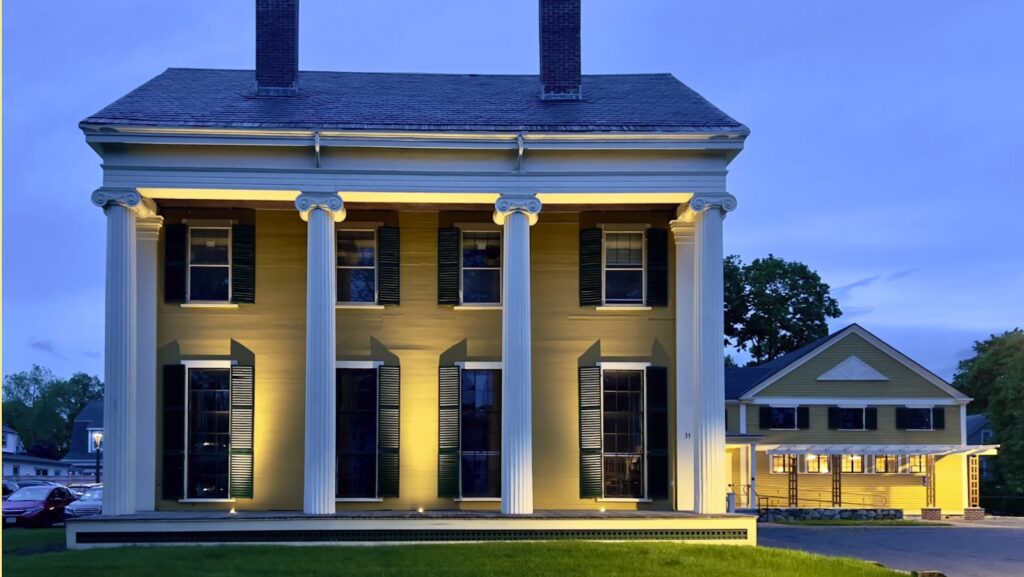Thursday night, guests at the Nathaniel Allen Center listened to musical history.
“Sonata Do You Want From Me” was part of a joint effort by the Newton Cultural Alliance (NCA) and Great Barrington-based music foundation Aston Magna to create a summer concert series.
Emboldened by the Allen Center’s superior acoustics, rich notes swelled within the room as a combination of carefully rehearsed musical movements and powerful spurts of improvisation cascaded throughout the room.
It was Aston Magna’s intention to both share and educate listeners on this slice of musical history as an artform with both a pre-concert lecture on each composer led by violinist Julie Andrijeski and a historically accurate performance by her quartet.
Daniel Stepner, artistic director of Aston Magna, said this educational portion was intentional “…so that the music doesn’t seem like just kind of an unexplained artifact, that it has a history, that composers have interesting lives, often lives with stress in them because of the political upheaval of one kind or another.”
According to Catherine Liddel, lute player and chair of Aston Magna’s board, enjoyment can be found not just within the hunt for the music itself but also through the search for the historically accurate sound of the musical pieces.
Listeners were swept away through Baroque Sonatas of Dario Costello and Johann Rosemüller which would suddenly fall silent, leaving Andrijeski to fill in this silence with violin solos. Oftentimes the other members of the quartet—Jeanne Johnson on Violin, Adrienne Hyde on Viola Da Gamba, Micheal Sponsellor on Harpsichord and Charles Weaver on Theorbo—would respond to these solos with often similar sounding but equally impressive musical rebukes of their own.
The contrast in tempo in Italian Composer Antonio Bertali’s Sonata in D Minor showcased the extensive range of sound that could be produced by both the Violin and Viola Da Gamba.
Other pieces ranging from the mid 17th to the early 18th century were showcased including an interpretation of Jean-Fery Rebel’s Les Caractères de la Danse. Andrijeski shared a satirical poem about the composition, separating it into different musical vignettes, with each movement telling different stories about 18th century characters.

There was a palpable sense of joy from the musicians. All members of the quartet could be seen smiling as they demonstrated their musical prowess.
Andrijeski said she was grateful to share her music at an event like Thursday’s.
Stepner selected the historical Allen Center as the venue after they were unable to utilize Brandeis’s facilities due to staffing issues. Stepner and Aston Magna enlisted the help of Adrienne Hartzel Knudsen, the Allen Center’s managing director, who was integral in organizing the event and securing the venue for the summer concert series.
Now a center for local artists, abolitionist and progressive educational reformer Nathaniel Topliff Allen purchased the building in 1854 to serve as his home. Allen funded West Newton English and Classical School located on Washington Street, which taught a racially mixed student body with international students prior to the Civil War.
According to Knudsen, The NCA purchased the home in 2012 and finished restoring the building during the pandemic.
Stepner said the Center’s historical significance “…enhances our performances, which makes us think about history and makes us appreciate history. I’m just amazed at what I’ve learned about Nathaniel Allen and his school, what he believed in.”
More music history can be heard at the Allen Center later this summer—information is available at https://newtonculture.org/